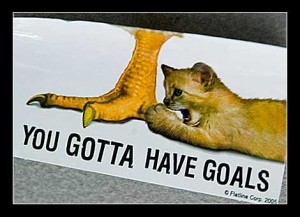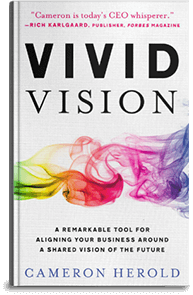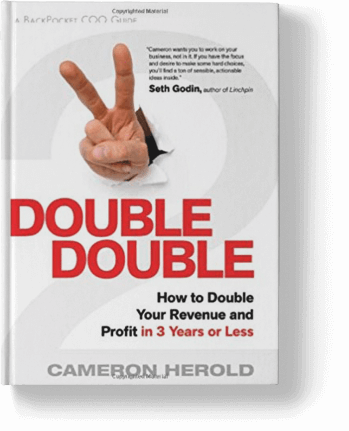Before committing to complete a project or set something up as a goal, ensure you spend some time thinking about what the potential return on investment is. That is, what is the return on your investment of time, money or resources in doing this project going to be? Is it really worth it?
It’s often not about picking which projects to do, but rather it’s about picking which projects NOT to do that will set you up for success. Recently I had a debate with a woman on Twitter. She was telling people to spend one hour a day on Twitter, and I said, “Really? Really? Do you really want people spending one out of eight hours every day Tweeting? Why?” What’s the ROI they are looking for from it? If you were going to spend 12.5% of your time on one activity such as using Twitter, then in my mind, you’d damn well better have a goal or ROI in mind before starting out.
Every year, about three to four months before the start of the New Year, I mentor CEOs on how to have an Annual Planning Retreat to come up with the top three to five goals for the company. They’ll decide on goals tied to revenue, profit, customer service, employee satisfaction and perhaps something on systems. These annual goals provide the framework for setting quarterly goals going forward.
 Every quarter, each business area and each person in your company should be setting up the top three to five goals they will achieve during the quarter to drive the company’s yearly goals. Imagine the focus your company would have if you knew what each of the top three to five goals each person in your company was achieving every quarter. Imagine how focused and aligned everyone would become.
Every quarter, each business area and each person in your company should be setting up the top three to five goals they will achieve during the quarter to drive the company’s yearly goals. Imagine the focus your company would have if you knew what each of the top three to five goals each person in your company was achieving every quarter. Imagine how focused and aligned everyone would become.
High–performing people set goals religiously, track them religiously, they obsess about whether they’re hitting or missing, and why. Otherwise life just passes by.
When you’re hiring people, ensure you hire people who already set goals in their personal and business lives. Then it won’t be such a stretch to have them setting clear goals in the business each quarter, month and week.
Life isn’t just about goals for your business, though. My goals also include the amount of free time I want in my life. I set goals for the amount of “Free Days” I’ll have. A “Free Day” for me is a twenty-four hour period with no email, no business journals, business magazines, newspapers, not a single phone call—it’s just a twenty-four hour period of free time to spend time on the fun stuff in life with people I love.
In 2009, my goal was to have one hundred twenty Free Days. I had more than one hundred fifty Free Days in the end, however, I got a bit sloppy and checked email randomly from my darn iPhone. I took close to ninety Saturdays and Sundays off, not working at all. I also took twenty-one perfect Free Days at our cottage in the summer and physically left my iPhone and laptop in Vancouver. I’m doing it again this summer for sure.
Simply working hard isn’t what it’s all about. As a business coach and mentor, I believe that having the discipline to even take Free Days is the kind of focus you need to give yourself real work life balance, too. What goals are you setting?










